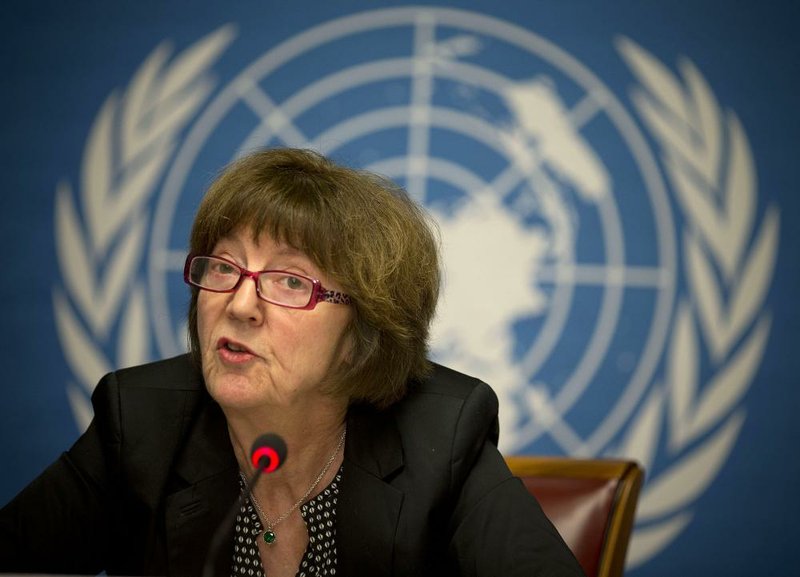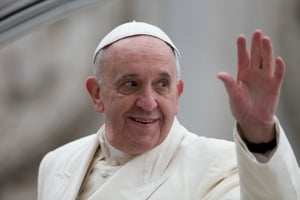VATICAN CITY - The Vatican “systematically” adopted policies that allowed priests to rape and molest tens of thousands of children over decades, a United Nations human-rights committee said Wednesday, urging the Holy See to open its files on pedophiles and the bishops who concealed their crimes.
In a report praised by abuse victims, the U.N. committee criticized the Holy See for its attitudes toward homosexuality, contraception and abortion and said it should change its own canon law to ensure children’s rights and their access to health care are guaranteed.
The Vatican promptly objected to the report, and its U.N. ambassador accused the committee of having betrayed the international body’s own objectives by allowing itself to be swayed by pro-gay ideologues. He said it appeared the committee simply hadn’t listened when the Holy See outlined all the measures it has taken to protect children.
The committee issued its recommendations after subjecting the Holy See to a daylong interrogation last month on its implementation of the U.N. Convention on the Rights of the Child, the key U.N. treaty on child protection, which the Holy See ratified in 1990.
Critically, the committee rejected the Vatican’s long-standing argument that it doesn’t control bishops or their abusive priests, saying the Holy See was responsible for implementing the treaty not just in Vatican City but around the world “as the supreme power of the Catholic Church through individuals and institutions placed under its authority.”
In its report, the committee blasted the “code of silence” that has long been used to keep victims quiet, saying the Holy See had “systematically placed preservation of the reputation of the church and the alleged offender over the protection of child victims.” It called on the Holy See to provide compensation to victims and hold accountable not just the abusers, but also those who covered up their crimes.
It called for Pope Francis’ nascent abuse commission to conduct an independent investigation of all cases of priestly abuse and the way the Catholic hierarchy has responded over time, and urged the Holy See to establish clear rules for the mandatory reporting of abuse to police and to support laws that allow victims to report crimes even after the statute of limitations has expired.
No Catholic bishop has ever been sanctioned by the Vatican for sheltering an abusive priest, and only in 2010 did the Holy See direct bishops to report abusers to police where law enforcement requires it.
The committee’s recommendations are nonbinding and there is no enforcement mechanism. Instead, the U.N. asked the Vatican to implement the recommendations and report back by 2017. The Vatican was 14 years late submitting its most recent report.
The committee is made up of independent experts, not other U.N. member states - the case on the larger and often politicized U.N. Human Rights Council, which also sits in Geneva. The Committee on the Rights of the Child is one of 10 U.N. bodies that monitor implementation of the core U.N. human-rights treaties, and its 18 members include academics, sociologists and child development specialists from around the globe.
Archbishop Silvano Tomasi, who headed the Vatican delegation at the Jan. 16 session in Geneva, was clearly taken aback by the tone of the report.
“It seems as if the document was prepared before the committee meeting, where the Vatican gave detailed responses on various points that weren’t reported in this concluding document or seem to not have been taken into consideration,” he told Vatican Radio.
While most attention has focused on child sex abuse, the committee’s recommendations extended far beyond, into issues about discrimination against children and their rights to adequate health care, matters that touch on core church teaching about life and sexual morals.
The committee, for example, urged the Vatican to amend its canon law to identify circumstances where access to abortion can be permitted for children, such as to save the life of a young mother. It urged the Holy See to ensure that sex education, including access to information about contraception and preventing HIV, is mandatory in Catholic schools.
It called for the Holy See to use its moral authority to condemn discrimination against homosexual children, or children raised by same sex couples.
Church teaching holds that life begins at conception. The Vatican, which therefore opposes abortion and artificial contraception, calls for respect for gays, but considers homosexual acts to be “intrinsically disordered.” The Vatican has a history of diplomatic confrontation with the United Nations over such issues.
Front Section, Pages 2 on 02/06/2014

